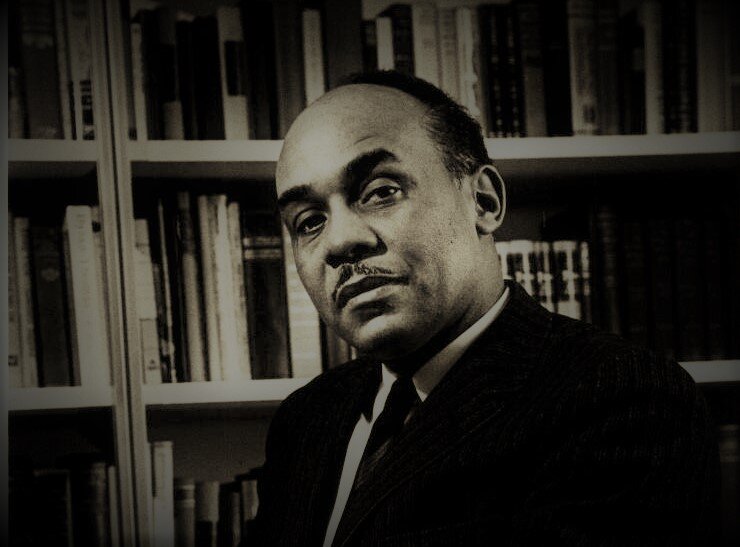Ralph Ellison's quintessential American novel is a good start for White people like me to understand racial injustice. But it's only a start.
Preface: In this post on racial inequality, I have chosen to capitalize "Black" and "White" as recommended by some social justice organizations. You can read more about one such standard here.
Approx 900 words; 3.5 minutes read time
I like books and have a nice collection of them. These cover a variety of subjects, including science, fiction, culture, philosophy, and religion. And while I have a diversity of authors in my stacks, I have only a single book by a Black author - Invisible Man by Ralph Ellison. And I only have this book because I had to read it in college.
It's a striking omission, given all the volumes in my collection. These include many stories by women and historically marginalized groups. In my attempt to be well-read, a glaring prejudice still exists. I don't read stuff Black people write.
It's hard for me to admit this.
***
I guess if I or anyone was to read anything by a Black person, reading Invisible Man is a good start. Published in 1952, Ellison's masterwork received the National Book Award for Fiction in 1953. The story follows a southern Black man as he matures, educates himself, and makes his way to Harlem. There he realizes, despite his best efforts to overcome, racial discrimination dictates his experience. As a Black man in America, he is invisible.
The story is a stark account of race, identity, and prejudice in early and mid-Twentieth-Century America. In its relevant message that speaks to all of us, Invisible Man is the quintessential American novel. Unfortunately, its relevance even today illustrates the persistence of racism in America.
***
Yes, reading Invisible Man is a good start. When I studied it years ago, I appreciated and identified with the protagonist. Mind you that I was a 19-year-old White country boy from rural Ohio. Invisible Man is that powerful - the story captures the essence of discrimination for all to share. Ellison himself acknowledged this was a goal:
"When I was a kid, I read the English novels. I read Russian translations and so on. And always, I was the hero. I identified with the hero. Literature is integrated. And I'm not just talking about color, race. I'm talking about the power of literature to make us recognize again and again the wholeness of the human experience." - Ralph Ellison, quoted in a story by NPR.
***
Today, I am listening to the Black voices out there right now calling for change. Many are rightfully telling me, as a White person, that I can never understand what it's like to be Black. And these same voices are asking me to feel more and do more - all with the understanding that I will never get it. That's a tall order.
But one thing White people like me can do is draw on our own experiences, imagining as best we can what it is like to be summarily, and institutionally discriminated against. Even if we can't ever know, we must continue to try and understand.
Reading Invisible Man can help.
***
But reading a book on racial injustice - even an excellent book like Invisible Man - is barely a start. We all have to do so much more.
This, of course, is easier said than done.
There was a time when I would have jumped at the chance to speak up. I was a loud-mouthed activist in my twenties, and back then, I made many waves standing up for what I believed. But in the process, I hurt a lot of people, including my family, making them feel small with my "big ideas" and beliefs. I think I did more harm than good then, as I beat my ideals into anyone who would listen.
Over time I learned that being an angry progressive did not work for me. So I ratcheted back the rhetoric, started listening more, and worked to live by example. I still hold progressive ideals, but I temper these with far more understanding.
I'm ever mindful of what I say and am always fearful of hurting others.
Another fear I have is, as a middle-aged White man, speaking out on race can be an invitation for ridicule. I am afraid of saying the wrong thing. And I am worried about the backlash and what could happen to me if I do. Yes, I am terrified of proving my ignorance about issues of racial inequality.
Finally, I am afraid this is not my place. My goal in writing is not social activism. Instead, I write to share my thoughts on science and science fiction. Publicly declaring my stance on racial inequality seems like a tangent.
Except it's not. I've alluded to the power of science fiction in addressing social injustice. And events right now are a striking example of where I should speak up. Moreover, all my concerns seem trivial in comparison to the fears Black people face each day. My reservations pale in contrast to George Floyd's plight, a Black man killed by police on May 25th, 2020.
***
Yes, I should say something. And do something. No one should ever be invisible.
I am listening.
Until next time. Science. Fiction. Create.
JRC
***
Have thoughts on what I should be reading, writing, or sharing on Black culture and experience? I'm all ears.
